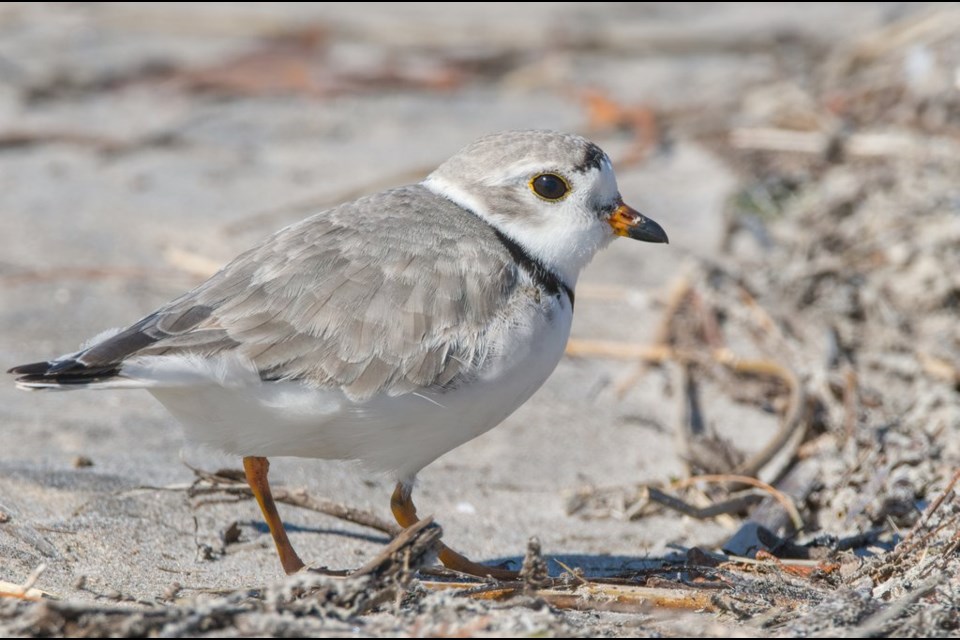Tiny Township is now home to two very special visitors. And no, they don’t have to wear masks.
A pair of piping plovers (nicknamed Tweety and Flash) are currently nesting in Woodland Beach on the shores of Georgian Bay. The piping plover is listed on the federal endangered species list.
“That location is a new one in recent history,” explained Andrea Gress, provincial piping plover coordinator with Birds Canada.
“Piping plovers returned to breed in Ontario in 2007 after a 30-year absence. There have been breeding pairs at Wasaga Beach every year since 2008 and in 2019 a pair bred on private property in Tiny Township...so we’re not surprised to have a pair nest in that new location this season.”
Gress said the beaches around Georgian Bay are perfect for the birds since they prefer wide, sandy beaches with some vegetation.
“The Great Lakes population has around 150-250 individuals,” she said. “They breed in Ontario and all the U.S. States that border the Great Lakes.”
Across Canada and the U.S. (including breeding populations in the Atlantic and the Prairies), there about 6,000 birds “so you could certainly say that it’s special to see piping plovers in your area!”
According to Gress, there are currently four nests in Ontario with an additional two to three pairs likely, but not yet identified.
“We have not been able to find all the breeding pairs this season due to COVID-19 beach closures,” she said, noting that there were eight breeding pairs across the province in 2019.
The Woodland Beach nesting area is identified with fencing and entering the enclosed area is strictly prohibited, meaning the public needs to respect the barrier and ensure that neither people nor pets enter the enclosure.
It’s very important to keep dogs leashed or off the beach in plover nesting sites, and respect the fenced off areas so that the plovers can have some space to themselves,” Gress said.
“They incubate their eggs for around one month. Once the chicks hatch, they can run and feed themselves almost immediately, but it takes them two to four weeks until they can fly. We take the fencing down once they’ve started to fly.”
Gress said the Tiny baby birds will likely hatch towards the end of June.
“It’s extra important once chicks hatch, for beach-goers to give the birds space. Chicks are around the size of golf balls, can be hard to see and just like toddlers, they will run all over the place while they’re parents chase them down.”
Flash, the male, and Tweety, the female, were named by volunteers at Wasaga Beach in previous seasons.
“Last year, their chicks did not survive, but we think they’ve picked better habitat this year, and with the public’s support, we’ll hopefully see some chicks fledge this season!”
